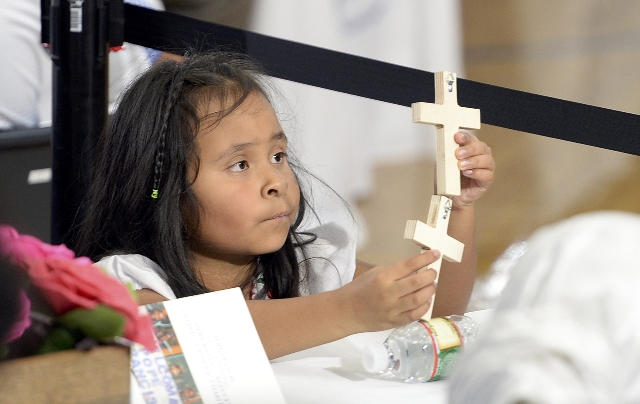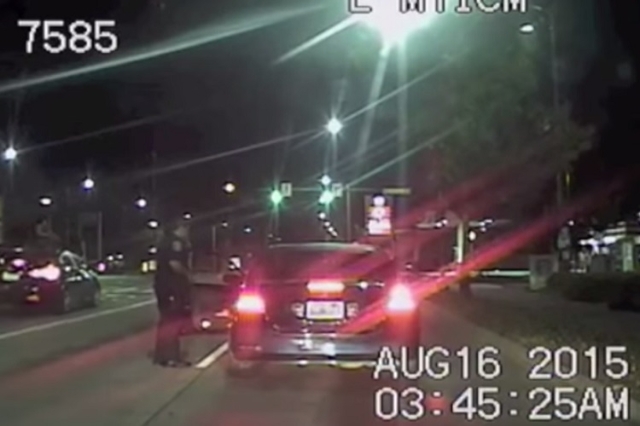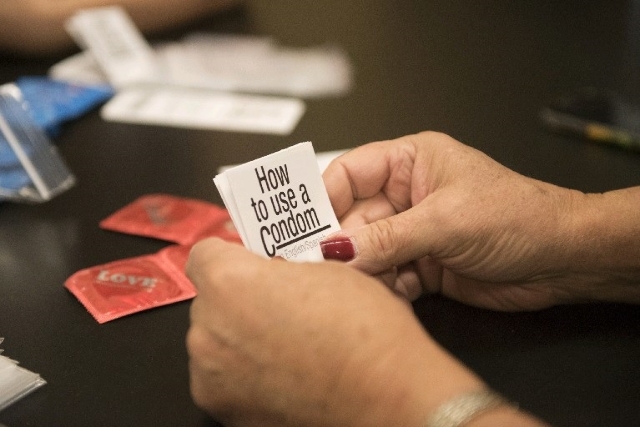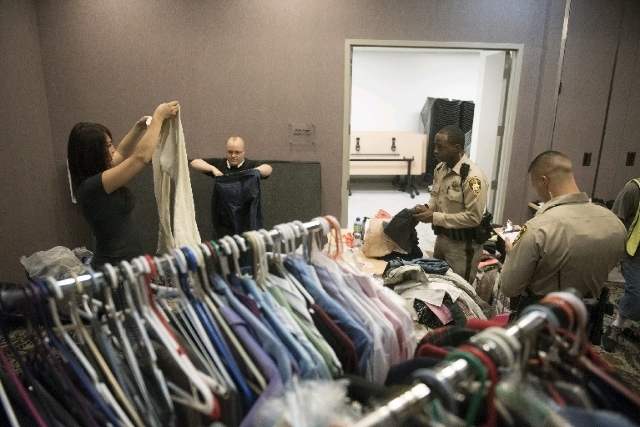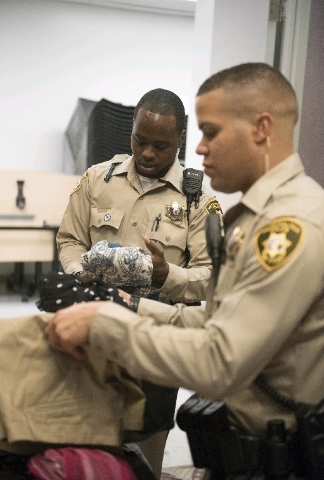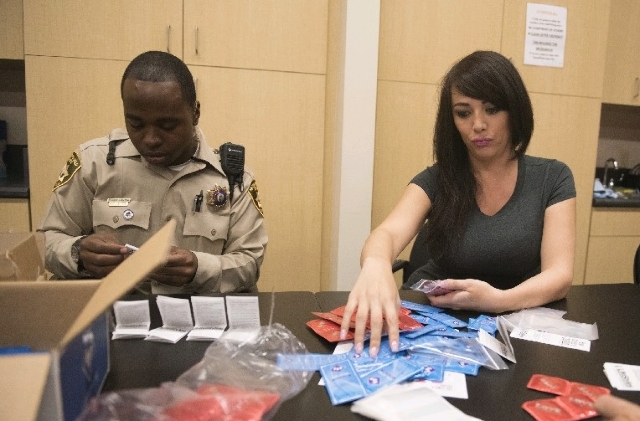Metro rookies build bridges with LGBT community
Las Vegas police reached out to members of the lesbian, gay, bisexual and transgender community last week as part of the department's Adopt A Cop cultural immersion program.
During his field training, Metro Officer Chanel Vargas Berbe, 25, wasn't sure what the acronym LGBT meant.
The knowledge would have been helpful when the rookie had to respond to a call about a transgender woman threatening to commit suicide. He had no idea what resources existed for LGBT people in the valley.
Last week, he said he wished he had known then about the Gay and Lesbian Community Center of Southern Nevada. He would have shared information with the transgender woman about available services and assistance.
Las Vegas police reached out to members of the lesbian, gay, bisexual and transgender community last week as part of the department's Adopt A Cop cultural immersion program. For the first time, Metro embedded a pair of rookie patrol officers at the center, 401 S. Maryland Parkway, near Lewis Avenue.
Metro officers do carry a small "We Care" booklet filled with information that officers can use to make referrals to different services for different communities across the valley, but it doesn't include any services for LGBT people or their families, Vargas Berbe said.
"I only knew a little bit," he said.
Tense history
The LGBT community has historically had a strained relationship with law enforcement, with police harassment of a New York City hangout for gay people that sparked the 1969 Stonewall Riots often cited as the launch of the gay rights movement.
Las Vegas' LGBT Pride celebration, unfolding this week, is a series of special events and parties, but early pride parades were protest marches that often ended at police stations with calls to stop discrimination by officers.
Toni Witten, 38, is the center's facilities manager, but she was a cop in San Diego before coming out as transgender and beginning the transition process in 2009. Witten was a victim of police discrimination by her own colleagues, and her law enforcement career ended when co-workers began spreading rumors about her. Rather than support her, she said her superiors forced her to see a psychiatrist.
Cultural competency programs, such as the one launched last week by Metro, just did not exist for police then, Witten said.
"It's good to see them out here," she said.
She said the efficacy of the program depends on officers remembering what they learned when they encounter a person who is transgender or gay.
"That's what I want," she said.
Making connections
Vargas Berbe and Officer Brandon Burks-Chapman, 27, spent Tuesday at the center learning about the LGBT community and the different programs and services the nonprofit offers. The officers spent two more days working the front desk, making safe-sex packages, spending time with the youth groups and helping transgender volunteers set up a clothing exchange.
The officers helped volunteer Cassandra Sainz, 30, sort, fold and display clothing donations for the Switch clothing exchange, held at 5 p.m. on Thursdays at the center.
As Sainz teased Vargas Berbe that police in Los Angeles looked cuter in their uniforms, the officer laughed it off and held up a shirt for inspection.
"Is this fashionable?" he asked the group.
The officer who barely knew what "LGBT" stood for said he learned a lot about transgender discrimination from the women he encountered. He said he heard a number of stories about women who were detained, searched or arrested for no reason and how hard life can be for them. A lot of transgender women find themselves on a path to legal troubles just because of who they are, he said.
"Some really can't get jobs by the way that they look," Vargas Berbe said.
Center CEO Michael Domingo has been a member of Metro's multicultural advisory council for nearly a year and said he was excited to be part of Adopt A Cop. He spent time with the officers on each of their three days at the center to explain some of the nuances of the LGBT experience.
"I think there are stereotypes on both sides," he said.
Domingo said one of the most striking moments came after Burks-Chapman learned a little about the coming out process. The officer said he wasn't "out" to many in his family as a cop. Burks-Chapman told Domingo that his African-American family can be anti-police.
"I thought that was an extremely important parallelism," Domingo said. "That was a very strong learning experience for them."
Contact Wesley Juhl at wjuhl@reviewjournal.com and 702-383-0391. Find him on Twitter: @WesJuhl



